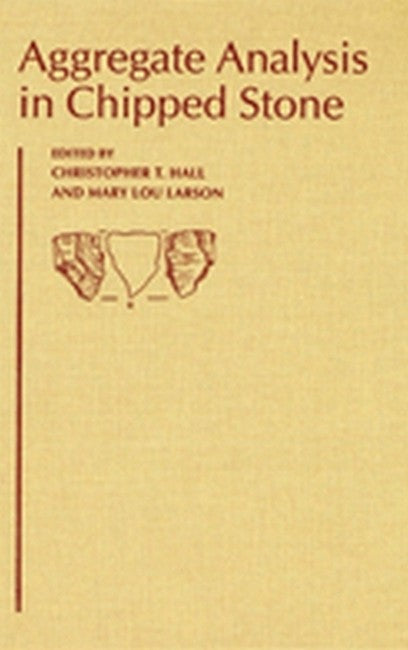Christopher Hall is staff archaeologist with Cultural Resource Analysts, Inc. in Lexington, Kentucky. Mary Lou Larson is associate professor of anthropology at the University of Wyoming, Laramie, and associate director of the George C. Frison Institute of Archaeology and Anthropology. She is co-editor of the forthcoming volume Hell Gap: A Stratified Paleoindian Campsite at the Edge of the Rockies.
Request Academic Copy
Please copy the ISBN for submitting review copy form
Description
List of Figures List of Tables I. Aggregate Studies in Chipped Stone Analysis 1. Chipped Stone Aggregate Analysis in Archaeology ~ Mary Lou Larson II. Evaluation of Aggregate Analysis Methods 2. Exploring Mass Analysis, Screens, and Attributes ~ Philip J. Carr and Andrew P. Bradbury 3. The Role of Small-Sized Debitage in Aggregate Lithic Analysis ~ Mark F. Baumler and Leslie B. Davis 4. Technological Analysis of Flake Debris and the Limitations of Size-Grade Techniques ~ Matthew J. Root 5. Seeing the Trees but Missing the Forest: Production Sequences and Multiple Linear Regression ~ Mary Lou Larson and Judson B. Finley 6. Debitage Taphonomy ~ Jeffrey T. Rasic III. Alternate Approaches to Aggregate Analysis 7. Evaluating Prehistoric Hunter-Gatherer Mobility, Land Use, and Technological Organization Strategies Using Minimum Analytical Nodule Analysis ~ Christopher T. Hall 8. Coarse-Scale Chipped Stone Aggregates and Technological Organization Strategies in the Hell Gap Locality V Cody Complex Component, Wyoming ~ Edward J. Knell 9. Refiitting as Aggregate Analysis ~ Peter Bleed IV. The Current State of Aggregate Analysis 10. Partitioning the Aggregate: Mass Analysis and Debitage Assemblages ~ William Andrefsky Jr. 11. Aggregate Methods and the Future of Debris Analysis ~ Michael J. Shott References Contributors Index
This book promotes the right way of doing lithic analysis. It clearly defines the problems and provides some solutions. Any and all lithic analysts who are wondering about how to conduct analysis on a given project should consider the major points of this book."-Journal of Middle Atlantic Archaeology

